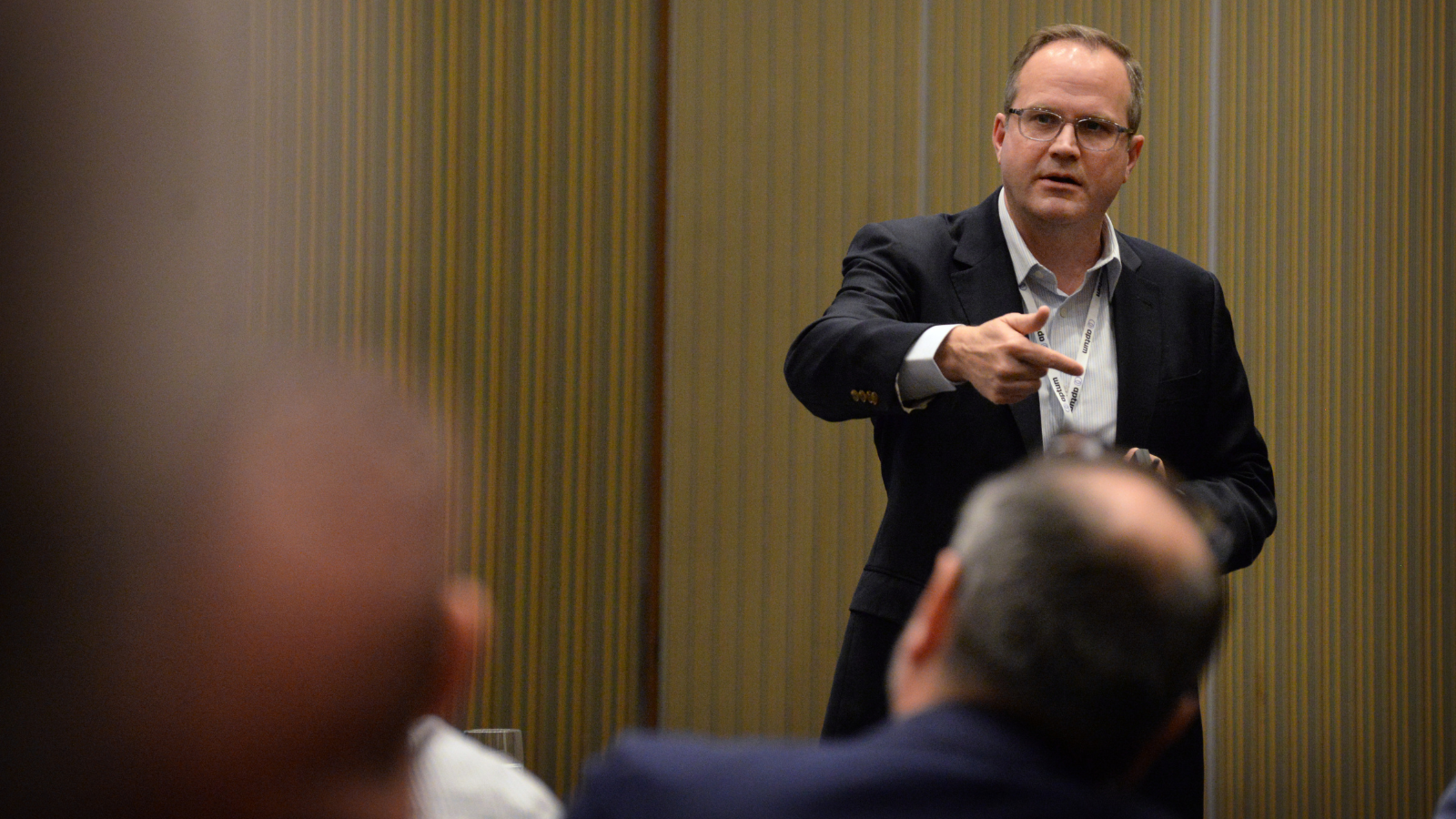Science
Ecosystems Crucial for Technology Adoption, Says CTO Michael Lewis

During a recent presentation at the CIO Association of Canada’s Peer Forum in Ottawa, Michael Lewis, Chief Technology Officer at Management Controls, addressed the challenges and critical importance of technology adoption within complex ecosystems. He candidly shared lessons learned from his nearly two decades of experience in software development for industrial giants, emphasizing that the success of technology hinges not solely on features, but on the collective willingness of owners, vendors, and users to embrace it.
Lewis recounted a significant miscalculation made during a nine-month evaluation of a reporting tool. The project was ultimately abandoned when users preferred Power BI over the system the company had planned to implement. He described the difficult conversation with his leadership team where he had to acknowledge the oversight, stating, “We’re going to live with this solution for a really long time… unless I come in and tell you guys this and we switch, then we’re going to be living with this pain for years and years and years.” This experience reinforced a fundamental lesson: sunk costs do not justify maintaining ineffective systems.
Structured Feedback as a Key to Success
Lewis underscored the importance of implementing structured feedback mechanisms, even if they delay progress. His team utilizes a quarterly advisory board designed to minimize bias and ensure that ideas remain grounded in practical realities. He recalled a mobile timesheet tool that initially appeared effective but failed to meet customer needs when tested in remote locations. The advisory board’s feedback prevented the rollout of a product that would not have succeeded in the market.
“The product management team is going and refactoring that idea, right? But without that checkpoint, we would have spent calories building a solution that wouldn’t have worked well in the market,” Lewis noted. He also highlighted that nearly 40% of his employees had previously worked as customers, providing valuable insights that, while beneficial, can also mislead if not validated externally.
Leveraging AI for Ecosystem Efficiency
Lewis also discussed how his team has effectively integrated generative AI into their operations. They developed a chatbot that provides real-time support for vendors, allowing them to query contract terms directly. This innovation addresses the challenges faced in environments where procurement documents are not easily accessible, ultimately improving efficiency in high-turnover contractor roles.
Initially skeptical of the chatbot’s necessity, Lewis soon recognized its potential to resolve significant business problems, stating, “When you understand the business problems you’re trying to solve, it adds a lot more meat to what you’re delivering.” The tool’s effectiveness was recognized when it earned the CIO 100 award, showcasing how generative AI can address real needs rather than just following industry trends.
Lewis shared another example of AI’s impact in reframing traditional contracting. A lump-sum project worth $600,000 for an estimated 10,000 hours of work revealed discrepancies; only 4,900 hours had actually been logged, effectively doubling the hourly rate. By employing generative AI to analyze contract language, workforce data, and market benchmarks, Lewis’s team provided transparency that had previously been lacking.
“We’ve gone through and figured out that your blended rate should be $61 an hour, not $122.45, and here’s all the by-line item rates that we’re assuming from the market,” he explained. This insight allowed owners to challenge inflated rates while helping vendors demonstrate compliance with fatigue rules and crew requirements.
The overarching message from Lewis is that ecosystems amplify both risks and rewards. Successful technology adoption is contingent upon the buy-in from multiple user communities, necessitating that CIOs cultivate processes to identify friction early, admit missteps when they occur, and align new technologies with actual user challenges.
By fostering a culture of discipline, Lewis illustrated that these practices are not bureaucratic hurdles, but rather essential protections. Establishing checkpoints, conducting previews, and being willing to reverse decisions can slow processes but ultimately prevent wasted resources and build trust among stakeholders.
In an ecosystem-driven environment, the stakes are significantly higher. Products that succeed for one group may fail for another, leading to system breakdowns rather than mere oversights. Recognizing and admitting mistakes early can save organizations from prolonged challenges and enhance leadership credibility by prioritizing evidence over ego.
In conclusion, Lewis’s insights highlight the critical role of ecosystems in technology adoption and the need for leaders to implement robust feedback mechanisms that foster collaboration and transparency. The lessons learned from his experiences serve as a guide for those navigating the complexities of modern technology landscapes.
-

 Science3 months ago
Science3 months agoToyoake City Proposes Daily Two-Hour Smartphone Use Limit
-

 Top Stories3 months ago
Top Stories3 months agoPedestrian Fatally Injured in Esquimalt Collision on August 14
-

 Health3 months ago
Health3 months agoB.C. Review Reveals Urgent Need for Rare-Disease Drug Reforms
-

 Technology3 months ago
Technology3 months agoDark Adventure Game “Bye Sweet Carole” Set for October Release
-

 World3 months ago
World3 months agoJimmy Lai’s Defense Challenges Charges Under National Security Law
-

 Lifestyle3 months ago
Lifestyle3 months agoVictoria’s Pop-Up Shop Shines Light on B.C.’s Wolf Cull
-

 Technology3 months ago
Technology3 months agoKonami Revives Iconic Metal Gear Solid Delta Ahead of Release
-

 Technology3 months ago
Technology3 months agoApple Expands Self-Service Repair Program to Canada
-

 Technology3 months ago
Technology3 months agoSnapmaker U1 Color 3D Printer Redefines Speed and Sustainability
-

 Technology3 months ago
Technology3 months agoAION Folding Knife: Redefining EDC Design with Premium Materials
-

 Business3 months ago
Business3 months agoGordon Murray Automotive Unveils S1 LM and Le Mans GTR at Monterey
-

 Technology3 months ago
Technology3 months agoSolve Today’s Wordle Challenge: Hints and Answer for August 19









